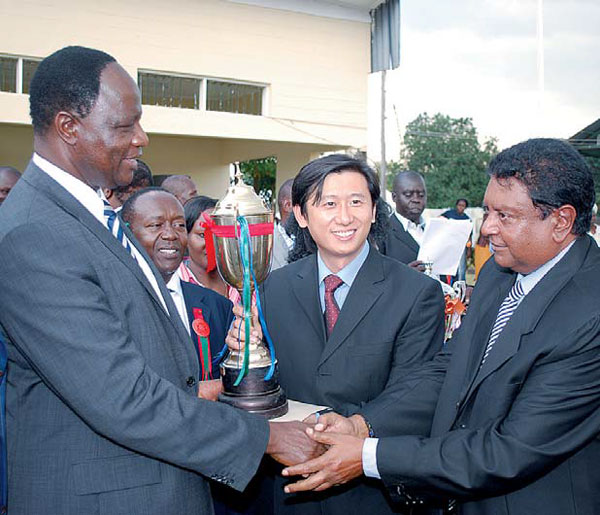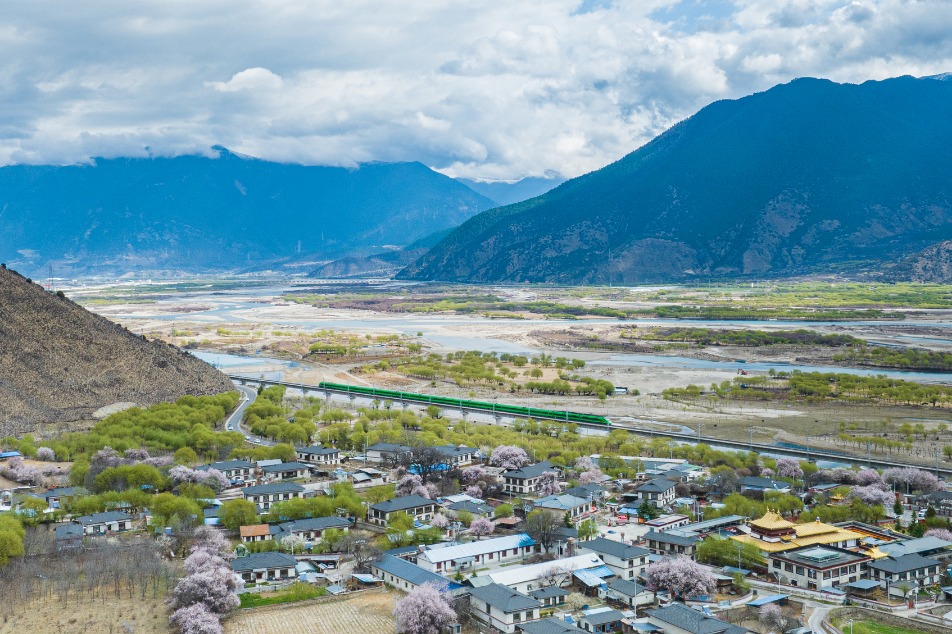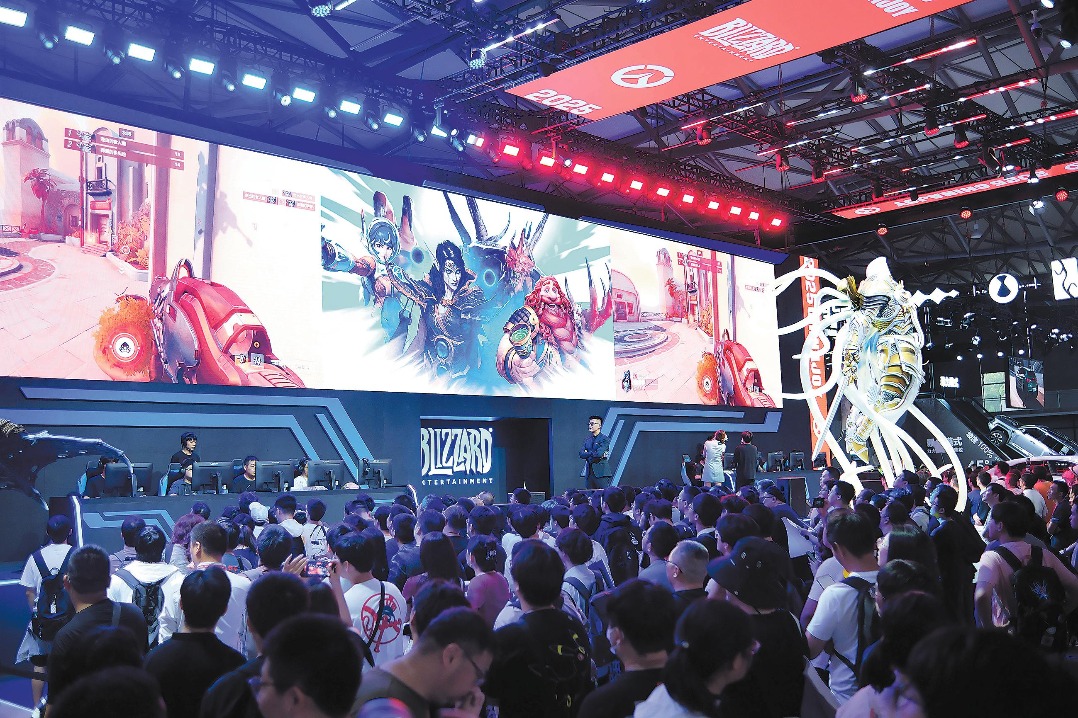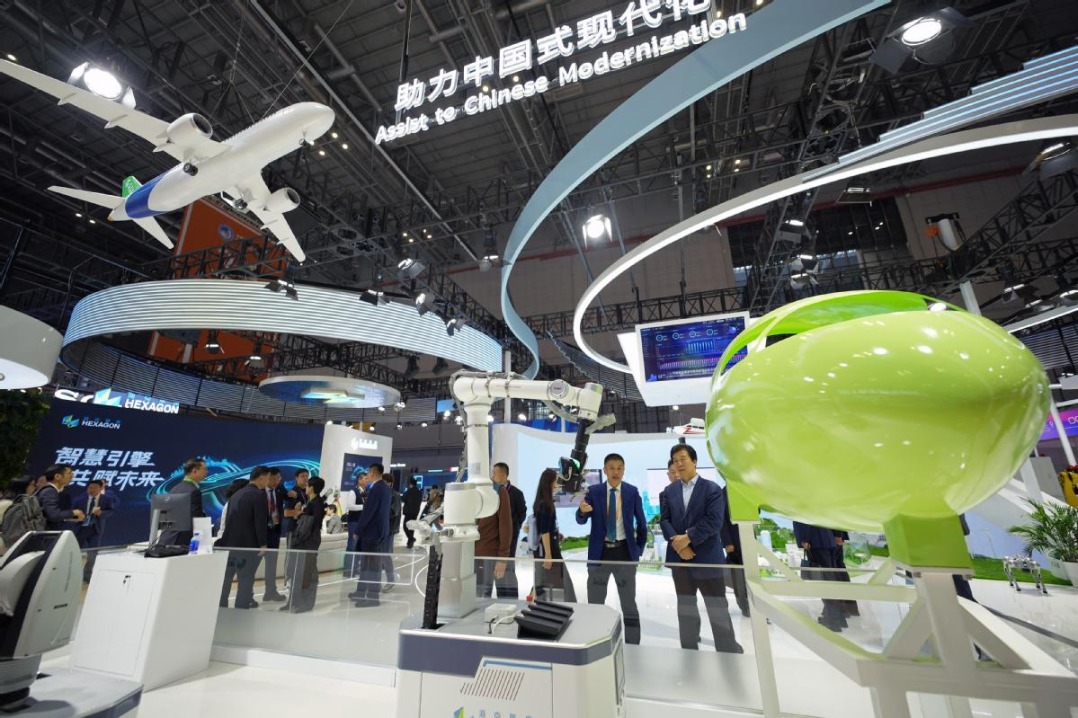How one man's opportunities multiplied

From food worker to business mastermind, an entrepreneur succeeds
The fertile African soil has nurtured many success stories. Chen Kefeng is one of them, having emerged as an entrepreneur from scratch.
Chen came to Kisumu, Kenya, from Shanghai in 1997 at the age of 19 to work at a Chinese restaurant. Six years later he acquired the restaurant and became its owner.
In 2003, he married an Indian girl and started a family. At the time, the auto repair and maintenance industry in Kisumu, Kenya's third largest city, was controlled by business people of Indian origin. Taking advantage of his wife's ethnicity, Chen decided to enter the sector after doing a market survey. He registered Kylin Motors in 2006.
| Chen Kefeng (center), CEO of Kylin Motors, holds the trophy awarded for Best Participants at the 2015 Kisumu Ask Show as General Manager Mohamed Khan (right) shakes hands with local officials. David Omondi / For China Daily |
"At the beginning, it was a small auto component shop," Chen says. "The Indian rivals united and tried to squeeze me out of the market.
"I started with only one Chinese boss and some local workers. Later, I hired a Pakistani. Right now, I have six Indians and some local people.
"I was sort of tenacious and strived to survive."
The business grew as the years went by. In 2008 he set up his auto repair business; in 2012 he set up an auto showroom; in 2015 he set up a tire center and in 2016 he set up his repair workshop.
The showroom is an agent for Chinese brands Beiqi Foton Motors, Xiamen Xiagong Engineering Machinery and Lovol Heavy Industry.
Today the company is ranked in fifth place in the city for auto components, second for auto repairing, third for auto sales and second for tires.
In 2013, the machine-cut stone industry began to grow in Kenya. The country accounts for 70 percent of machine-cut stone products in the world. Around 90 percent of the houses in Nairobi and 70 percent in Mombasa, the two largest cities in Kenya, are built with such stones but the industry started late in western Kenya.
"There was no such plant three years ago in western Kenya," Chen says. "I inspected the plants near Nairobi and planned to set one up in Kisumu."
He found a suitable supply of sedimentary volcanic rock. In 2013, he registered Lever Rock Investment Ltd. The plant is centrally located for four cities in western Kenya. It is 85 kilometers from Kisumu, 120 km from Eldoret, 125 km from Kisii and 125 km from Kakamega.
Right now, there are eight such plants in the area, compared with nearly 300 in Nairobi.
"In the western part of Kenya, the population is around 20 million, which represents a large construction market," Chen says.
The stone bricks can be used for building houses. Now his company is the largest stone producer in western Kenya, with a daily output of 20,000 bricks.
It employs two Chinese managers, eight machine operators, six logistics staffs and about 100 workers to move the bricks.
So far, Chen has invested more than $1 million in his auto repair company and another $1 million in the stone company.
The high cost of importing cutting machines from Italy forced him to seek alternatives. He invited Chinese engineers to design machines. Unfortunately, even with a design, Chinese companies were unable to produce steel capable of coping with the wear and tear.
Chen learned that the latest full hydraulic systems were able to avoid problems with worn parts. He decided to develop the equipment on his own, with key parts - such as the motor and hydraulic pump cutter - imported from Europe, the steel structure from China and then assembled in Kenya, thus developing a machine-building industry in Kenya.
Chen's ambition is to open more stone plants, using his own equipment, transport and sales network.
panzhongming@chinadaily.com.cn
(China Daily Africa Weekly 02/24/2017 page29)
Today's Top News
- Xi arrives in Lhasa for celebrations of 60th founding anniversary of Xizang autonomous region
- Xi to review troop formations lining up along Chang'an Avenue during V-Day parade
- The great power game behind the Alaska summit
- Tariffs and the new geopolitics of the Amazon
- Xizang's meteoric rise proves true
- Xizang strides toward modernization































